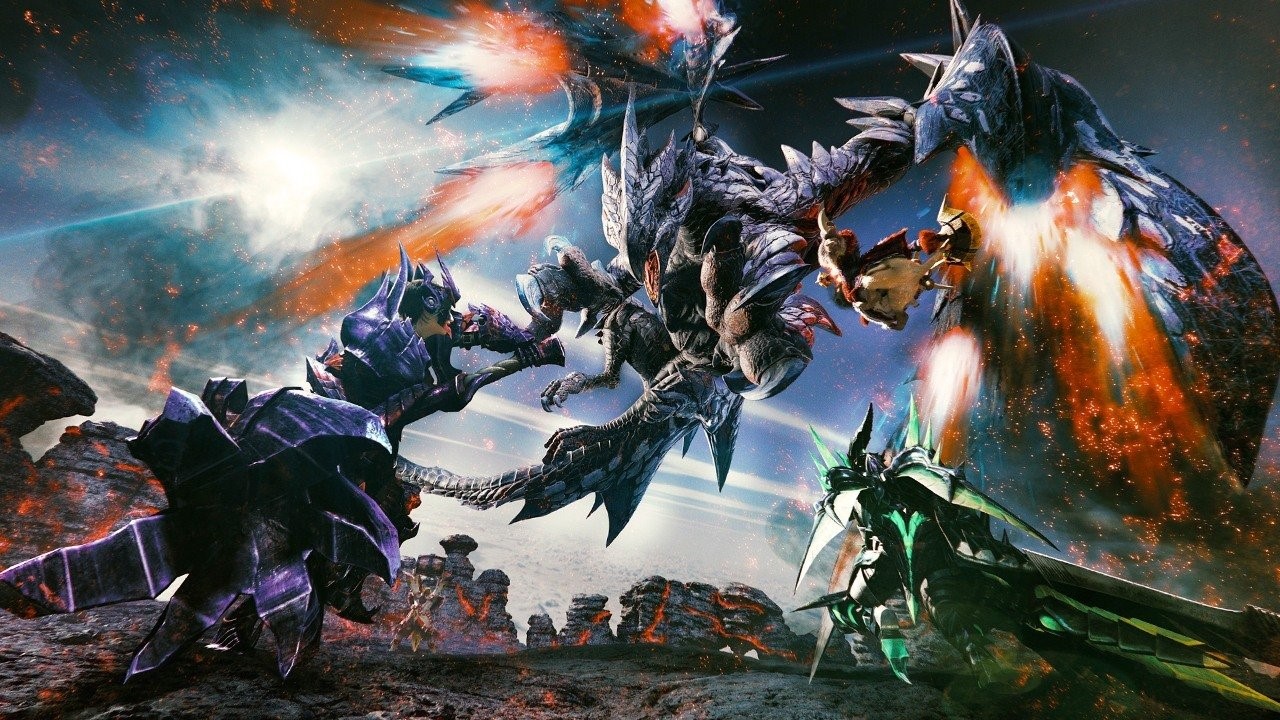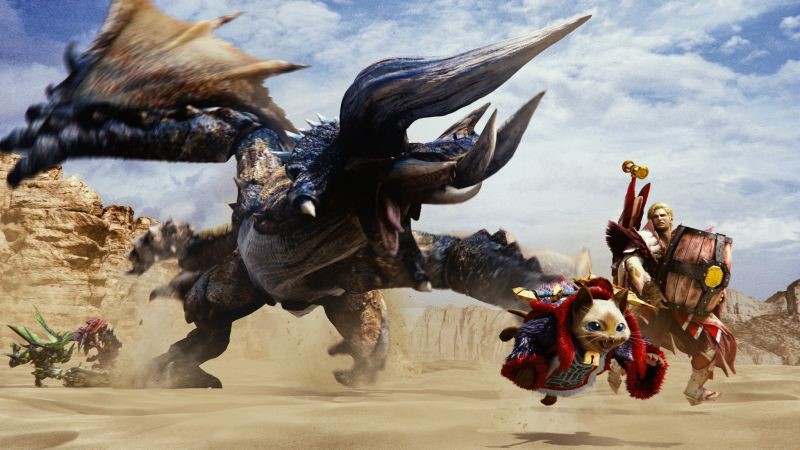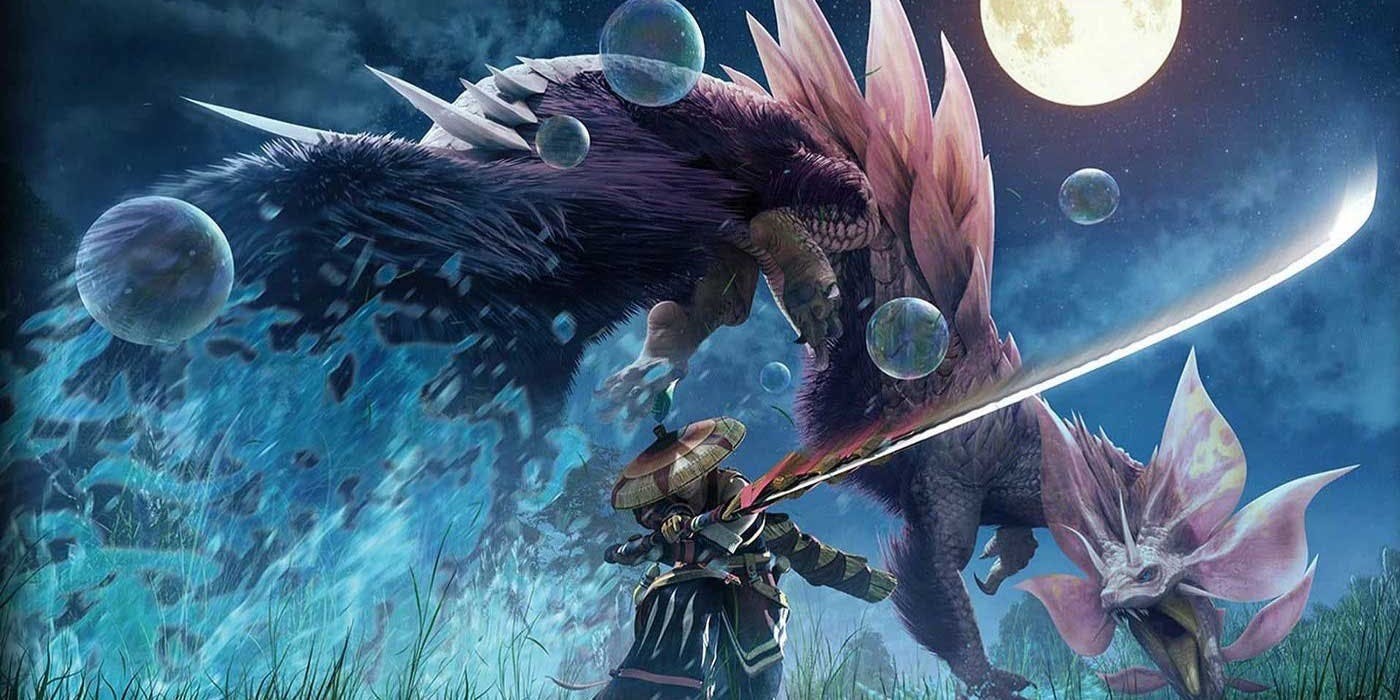Monster Hunter Generations Ultimate Review: Read Before You Buy

In recent years the Monster Hunter series has become one of my all-time favorite. There are few games that can match the intensity packed into each corner of this series. Being a bit of a glutton for punishment, I can’t help but love the uphill battle that must always be fought, clawing and scraping for victory as you build your skills and equipment. That being said, I’ll do what I can to put my brand loyalty aside and look at things in an objective light. The truth is, for its myriad improvements, this most recent addition to the Monster Hunter series has a few things it could stand to improve.
About Monster Hunter Generations Ultimate
Monster Hunter Generations Ultimate (or MHGU) is an action rpg, and the tenth main entry in CAPCOM’s Monster Hunter series. If you’re surprised that you’ve never heard of a series with ten installments, don’t be. Since its first release Monster Hunter has been a niche franchise, having a moderately sized but ardent fanbase.In MHGU, as I’m sure you’ve guessed, players hunt monsters. That’s all there is to it, really. Everything revolves around hunting. There are other quests of course, but they all serve the prime directive of killing more monsters. Any resources you gain from finding bugs or plucking herbs help you create items, weapons, and armor that make you a better hunter. When you kill a monster you can harvest its part to make better weapons and armor so you can, of course, hunt more monsters, and stronger ones at that. Following its release on the Switch on August 28 of this year, MHGU has continued the series’ trend toward the mainstream. With the release of Monster Hunter Worlds last year the series made its triumphant return from Nintendo hell, having been released only on Nintendo platforms since 2010, and MHGU is the first release on a main Nintendo console since 2013. MHGU has received some well-deserved praise from most everyone. On IGN it scored 8.3/10, and on Nintendo Life it scored 9.5/10. Press Start gave it an 8/10, Fandom a 4.5/5, US Gamer a 4.5/5, and Gamespot a 7/10. The only outlier I saw was the Daily Dot, which gave MHGU a 2.5/5.
Monster Hunter Generations Ultimate: Story
Odds are, if you bought MHGU it wasn’t for the story. That’s not a bad thing, though. In an era where games are becoming more cinematic with every passing quarter, it’s nice to have a game that’s pure gameplay. Truth be told, I don’t even know what the story is. It’s all buried in text boxes that I skip past in my hurry to hunt more monsters. Monster Hunter 4 Ultimate (MH4U), which served as my introduction to the franchise, had a story that, in addition to being compelling, was impossible to miss. You couldn’t skip past it while wandering through the hub. Characters would speak up while you were in a mission, bringing up important information in a way that couldn’t be ignored. Rather than moving from one mission to the next without any continuity, you had a narrative to match your seemingly random quests. In MHGU, however, this is not the case. The lack of an engaging story leads to a sense of detachment between the player and the characters and locations they come across throughout the game. In spite of the visually appealing localess and interesting NPCs, it’s hard for a player to get invested when the story is so easily bypassed. While a better story would be nice, I can’t say I fault the developers for putting their focus elsewhere. Gameplay has always come first, and that is what has made Monster Hunter what it is today.
Monster Hunter Generations Ultimate: Gameplay
This is where the rubber meets the road. I’ll try to keep things short and sweet, but there’s a lot of ground to cover. The draw of MHGU is the combat, which has reached a new level of complexity since Worlds and MH4U. As in previous installments there are fifteen types of weapons, each with their own combos and controls to memorize and master. Further, there are six styles of hunting. Each changes the abilities of your chosen weapon, and when one takes into account the dozens of hunter arts that can be assigned to the respective styles, it’s easy to see that MHGU is far from simple. What’s more, one must also account for the items, health bar, stamina bar, status effects, and elemental advantages that are woven into the game’s fabric. There are your basic health items, items that restore your ever shrinking stamina bar, items to help you escape from a coffin of ice, items to blind monsters in a flash of light, and many, many more. Not only must you gather the materials necessary to craft them, but you must also discover the necessary recipe from a catalogue of hundreds. Weapons and equipment are also a fickle affair. Not only must you be mindful of your weapon’s attack, sharpness, elemental abilities, and critical hit rate, but you also need to watch your armor’s base defense, elemental defense, skills, and decoration slots. The monsters themselves have their own variables to consider. They each have elemental abilities, attack patterns, movement patterns, and break points, each of which must be memorized to get the best results from your hunt. The maps have their own ways of making things difficult. Hot or cold environments require items to stave off status effects. Some maps have differing terrain that you must learn to use to your advantage, and others have shortcuts that let you get from one area to another especially fast. When you add the mechanics of prowler mode into the mix, things get especially dicey. Since the first installment of the series your hunter has been accompanied by a cat-like companion called a palico. In MHGU, you are given the opportunity to play as your palico in prowler mode, which adds its own controls and skills to the base gameplay. You can equip armor and weapons just as in hunter mode, but you can also equip special skills that let you throw bombs or heal your teammates. I’m sure I left one or two things out, but you get the idea. The game’s complexity can be a two-edged sword, both helping and hurting its overall quality. But before we end this section, there’s one more thing you need to know. There’s no proper tutorial. In summary, if you like your games simple, you won’t like MHGU.

Monster Hunter Generations Ultimate: Multiplayer
The multiplayer is what really makes the Monster Hunter series stand out. It’s one thing to have an engaging single-player experience, but it’s another matter to seamlessly blend that experience into a multiplayer environment. Nothing really changes in multiplayer aside from the fact that you’re hunting with up to three other people. They can bring their own items, armor, and weapons, give you better food options, share items, and help you clear quests that are too difficult for you to do on your own. Most everyone is polite and sociable, and if you can get a regular party going you can blaze through the quests in half the time it would take on your own. The co-op in MHGU is true to its title. Everyone cooperates to accomplish a shared goal, not to beat another team or get the highest score, but to overcome unimaginable odds.
Monster Hunter Generations Ultimate: Mission/Quest System
The mission system is simple. The more monsters you hunt, the more quests you unlock. You start with simple, easy missions, such as delivering items or hunting groups of tiny monsters. But as the game progresses the missions become more difficult and more complicated. Some may require you to hunt multiple monsters at once, prioritizing targets and getting equipment that can deal with both the monsters’ weaknesses. There are two criteria of quests. The first is the village quests, which you can find in any of the villages. These serve as the single-player campaign, advancing the story and helping you work your way up to the real challenge, the guild quests. The guild quests are found in the Hunter’s Hub, and serve as the multiplayer missions. These are noticeably more difficult, and require a bit of extra effort from you and your teammates. The village quests are ranked by stars, and the guild quests are dependent on your hunter rank. The farther you advance in both, the closer your come to the coveted G-rank, where the most rewarding and soul-crushingly difficult missions in the game are waiting to rip you apart. That being said, not every quest is a winner. Some quests leave you to spend half an hour fishing while others force you to hunt throngs of small, fast, and irritating mini-monsters. One can hardly help but wonder when they’ll be able to get back to the real hunting.
Monster Hunter Generations Ultimate: Graphics
The graphics in MHGU are a significant step up from MH4U. The elemental attacks, explosions, weapon impacts, and environmental interactions are all upgraded, and with the Switch’s larger screen and higher processing power the overall quality has improved. Things that were painfully pixelated on the 3DS, such as armor or monster design details, are clearer than ever before. For a Nintendo system, that is. Are the graphics comparable to a PS4 or an Xbox One? No. Plain and simple.
Monster Hunter Generations Ultimate: Price
MHGU retails for $60 on Amazon, and is priced in a similar manner wherever physical copies are sold. If you live anywhere in the Western world, odds are you’ll only be able to buy it for the Switch. In Japan, however, a 3DS copy exists. For a game with so much content and replayability packed into it, $60 is a reasonable price to pay. The game comes with DLC included, which believe me, there is no shortage of. The DLC page is updated regularly, with new missions and equipment coming in each installment. You’ll also be pleased to hear that the game is almost entirely free of bugs. Almost. When playing multiplayer with a poor connection you might find one member of your party sprinting into infinity only to reappear next to you moments later. In contrast to many games today, there are no in-game purchases, which also means there are no pay-to-win options available. Everything is based on your own skill as a hunter, as well as your ability to work with others in the co-op missions.
Monster Hunter Generations Ultimate: Final Score
All in all, I’d give this game an 8/10. It’s far from beginner friendly, but you can learn it if you try. There are a few places it could stand to improve, such as getting a more involving story and maybe simplifying the mechanics a bit, but when all’s said and done it’s a solid game.

You may also be interested in:
- Log in or register to post comments
 Home
Home PC Game Trailers
PC Game Trailers News
News Menu
Menu

